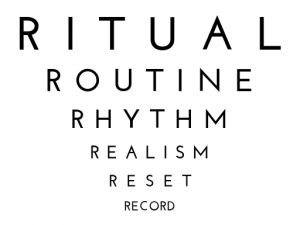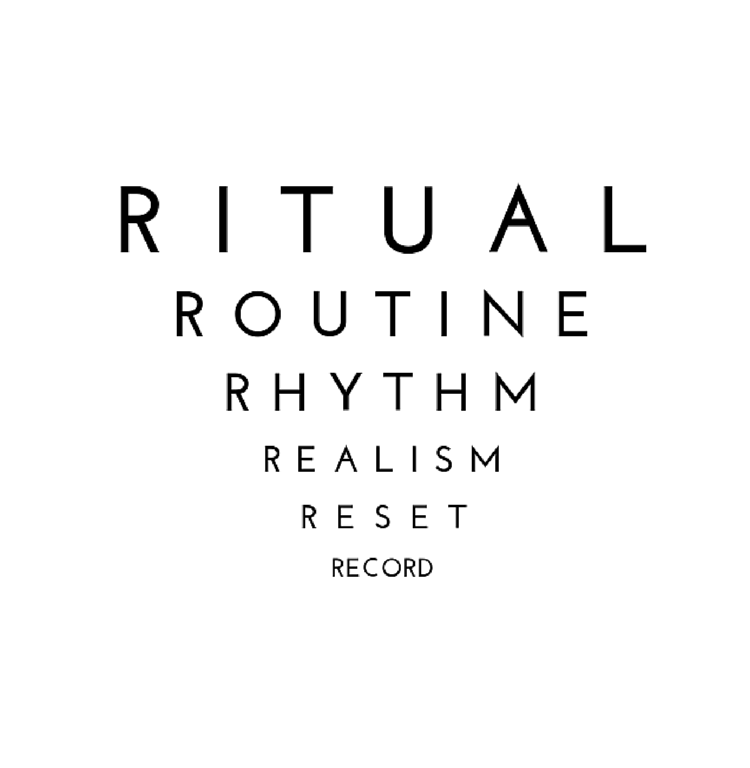We all get the same number of hours in the day, but some people seem to accomplish a superhuman number of goals in that time. What’s their secret?
About a year and a half ago, I became obsessed with productivity. What made some people so productive and successful — especially in creative fields — and what was the actual science behind it?
After reading books on habit, willpower, rituals, routines and anything else that might increase my writing output, I set up what I like to call the Productivity Pyramid (though yes, I realize it’s really a triangle). It’s made up of six crucial elements.

1. Ritual
The top of our Pyramid is the most important. Rituals are habits that begin with a behavioral cue — a sort of trigger that tells the brain “Now it’s time to work!” Some authors have quite elaborate cues (such as reading the same poem before writing) and others have more simple ones (such as making a cup of tea). Either way, having a ritual helps the brain slip into its creative flow automatically.
I cultivated my ritual years ago as a student who didn’t want to pay attention in class: writing in a spiral-bound notebook. Just sitting down with the lined paper and a pen tells my brain, “Oh! We’re writing stories now!” and I can use this ritual whenever I need to!
Stuck in line at the DMV? No problem — out comes the notebook. Waiting for my order to finish at the coffee shop? Awesome — I can pull out my notebook and instantly get to work. Figure out what triggers you to prepare for creative work, and create your own ritual.
2. Routine
Routine is almost as important as ritual because, like ritual, it trains your brain to create on autopilot. This doesn’t mean your creative times are boring or redundant. Rather your brain gets used to drafting at X-hour everyday, and when that hour arrives, your imagination is ready to go!
The other powerful component of routine is that it reduces the number of decisions you make in a day. You see, willpower is finite; the more we use, the less we have. Decisions deplete willpower, so if we can reduce the number of decisions we have to make in a day — if we can routinize certain aspects of our life — then we can save our decision-making for our writing.
3. Rhythm
Our creative energy shifts and changes throughout the day, just like our circadian rhythms. Figuring out at what point in the day you’re the most productive creatively — when your brain is really “on” — can dramatically improve your creative output.
My whole life, I’ve thought of myself as an afternoon worker, since that was when I seemed to sit in the chair with my hands on the keyboard. I thought my creative energy was best a few hours after lunch.
However, after using a productivity heat map, I discovered that I was actually a morning person! I sink into creative flow the deepest and for the longest time immediately after I roll out of bed in the morning. To make the most of my natural rhythm, I’ve set up a routine that starts with me awakening at 5 AM and writing for a few hours straight.
Do you know your most productive times of day? Check out your own rhythm with these strategies.
4. Realism
This is a pretty straightforward step on the Pyramid, but if you really tap into it, it can be transformative. Why? Because many people set unrealistic goals, get frustrated when they don’t meet them, and then give up. (I am SO guilty of this!)
One good day of writing doesn’t mean we’ll have that same amazing word count every day! However, if you set a truly achievable goal — especially a daily one — hitting it will help your confidence grow.
I set a daily goal of 1000 words when I’m drafting a new novel. This goal is not only attainable, but it’s easily attainable. It doesn’t intimidate me or set me up for immediate failure. Yet, 1000 words a day leaves me an entire novel in just a few months. What’s your achievable, realistic daily goal?
5. Reset
It’s unavoidable: Our bodies need regular rest periods. Creatively speaking, our brains can only produce at peak performance for a certain amount of time — and then we have to reset.
Both on a daily scale and on a more long-term weekly or monthly scale, breaks can be your new creative best friend. Have you ever noticed that some of the best aha! moments come when you’re not working?
For example, I have my biggest creative breakthroughs while I’m driving on the highway or cooking dinner or walking my dogs — when I’m not actively thinking about my story, yet the ideas are still knocking around in my subconscious. I know other people who use meditation or binge read or take long hikes.
Find a reset strategy that works for you, and enjoy your renewed energy and creativity when you return to your work.
6. Record
Creative endeavors (like novels) can be HUGE. “Write a book” is a daunting undertaking (and such a vague goal), so seeing daily progress can help keep you motivated to continue.
To keep myself on track, I use a spreadsheet to note how many words I’ve written each day as well as record any other work I’ve done (e.g. revised two scenes or wrote a blog post). Then I tally up the total word count each day so that I can see how much my project is growing! The visual interpretation of my progress helps keep me motivated.
Your tracking method can be as simple and private as an Excel spreadsheet, or you can make it a group endeavor by sharing a Google spreadsheet with a few fellow writers.
The Productivity Pyramid has helped me write and revise to the maximum of my creative abilities while also traveling for author events, promoting my books and maintaining my writing blog and newsletter. I hope it can help you do the same!
How do you increase your creative productivity?







